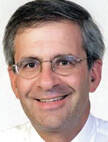One-third of Americans did not vote in the last presidential election, perhaps the most important in a generation. Even though voter participation in 2020 was the highest since 1900, only 66.8% of Americans voted in an election with perhaps the most flexible voting requirements ever.
That is not enough, at least in the view of E.J. Dionne Jr., the Washington Post columnist, and Miles Rapoport, a fellow at the Harvard Kennedy School’s Ash Center for Democratic Governance and Innovation. In their new book, “100% Democracy: The Case for Universal Voting,” they argue that voting should be a duty, much like serving on a jury, registering for the draft and paying taxes.
It’s a provocative idea, embraced in 26 countries, at once consistent with American tradition (the Constitution begins with the phrase “We the people,” which suggests all of us) and at odds with it (Americans don’t like to be told what to do, as the debates over masks and vaccines prove).
Voting is a precious right that Americans, in their affluence and ease, have taken for granted. We shared the conviction that democracy was durable, that elections didn’t much matter, and that the stakes weren’t that high. Some of us voted, some didn’t. No problem.
But in two contests in less than 30 years, the United States has seen the consequence and fragility of elections.
In 2000, the U.S. presidency was determined by hanging chads and haggling lawyers in a Florida contest decided by 537 votes — or by some other minuscule number, depending on who was counting and what you believe — in an electorate of about 6 million souls.
And in 2020, vast numbers of Americans did not trust the verdict of the most sacred public act that our citizens perform.
The big surprise in 2020: This new generation of young voters is performing better than its predecessors, with record turnouts in both the 2018 and 2020 general elections. The 2020 election was the first time that a majority of those 18 to 29 actually voted.
“This is a highly anxious, highly knowledgeable, depressed group of young people,” said John Della Volpe, director of polling at Harvard Kennedy School of Government’s Institute of Politics and the author of “Fight: How Gen Z Is Channeling Their Fear and Passion To Save America.” “Everything they were shaped by was negative. They don’t remember a time of national unity. Rather than turning away from politics, they turned in, and actually turned out to vote. I don’t think we’ll see a diminution in that.”
Midterm elections are more challenging for the Democrats, because younger people, poorer people and people of color are major components of the Democratic coalition and tend to vote in midterm elections at lower levels than older white voters. The expectation that the Democrats are going to take a shellacking in November also could lower participation. “Voting groups that are disengaged could become even more so because they feel their vote won’t matter,” said Michael McDonald, a University of Florida expert on voter participation.
I’m not sure whether universal voting would change the outcome of elections, but I am certain of this: An election is a civic ritual, and with the decline of local newspapers, the proliferation of television news and streaming services, the sorting out of Americans by wealth, education, political inclination, and ethnic and gender identity, we have fewer civic rituals than ever and thus fewer shared experiences.
I understand the value of mail voting; as a political correspondent traveling with a candidate on a final offensive on Election Day, I often voted that way. But I always saw poetry and purpose in an entire country doing the same thing on the same day, seeking to define the country and to set its course.
It is a shame that voting might be required. But our time might require it.





